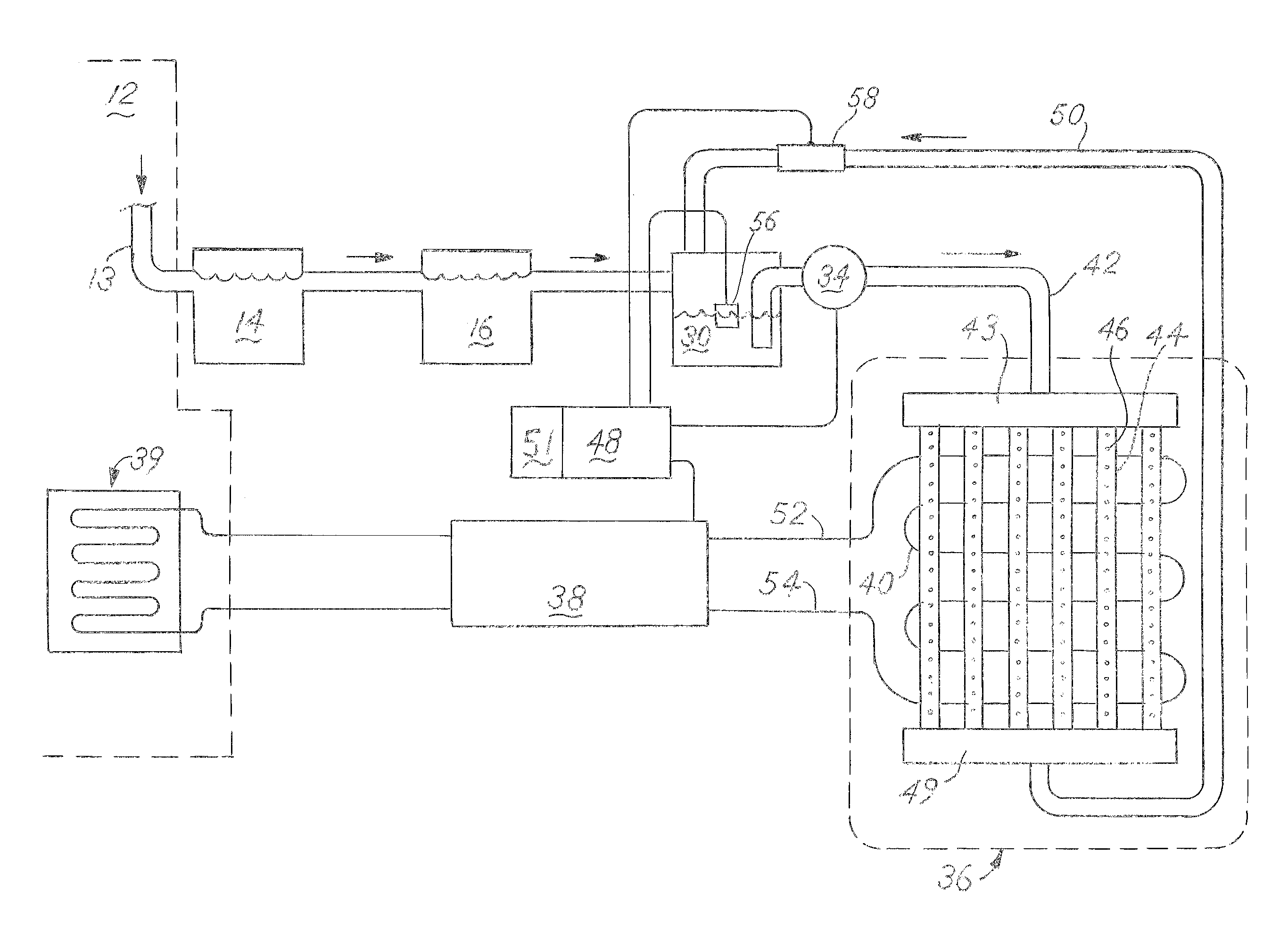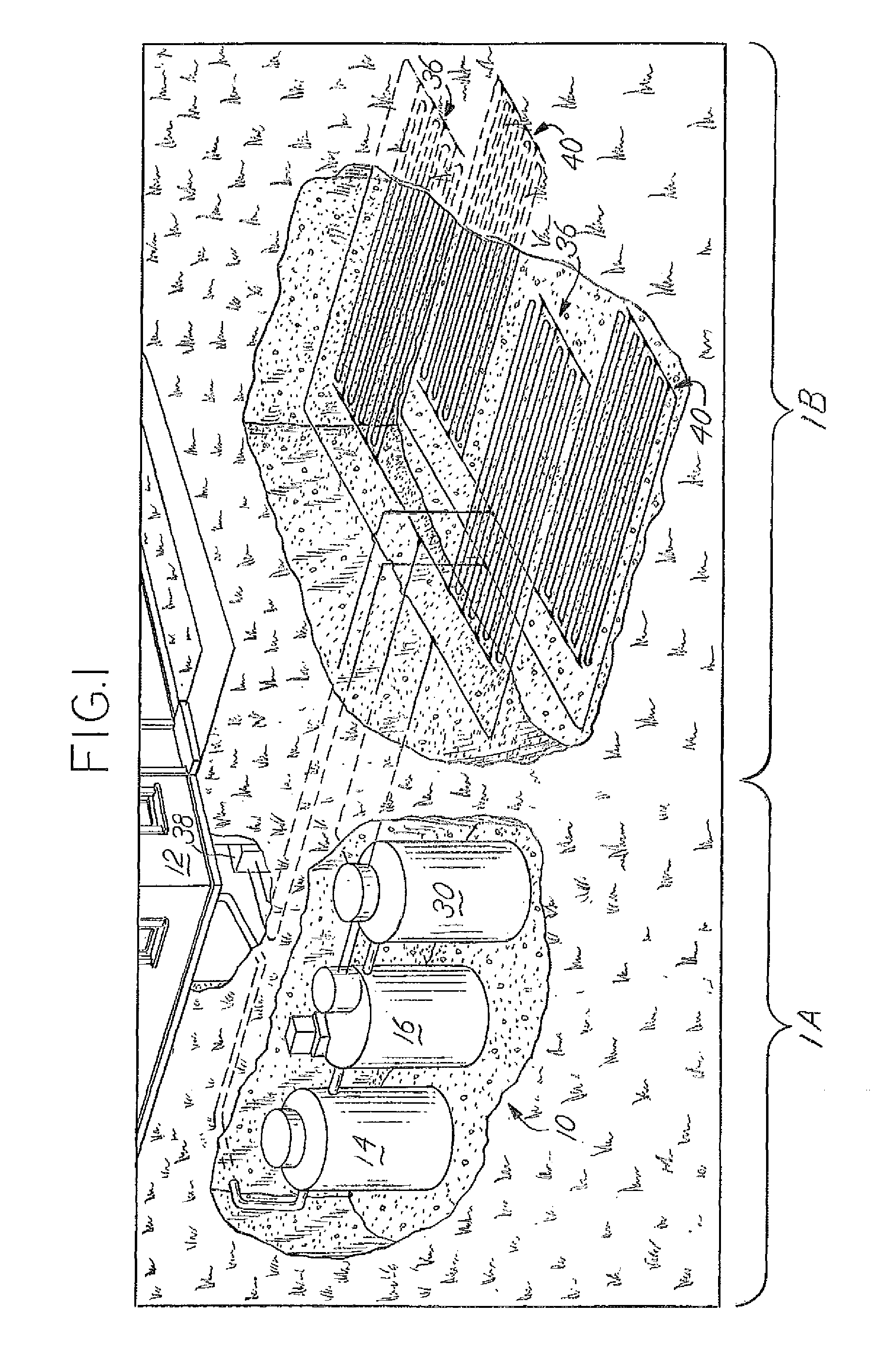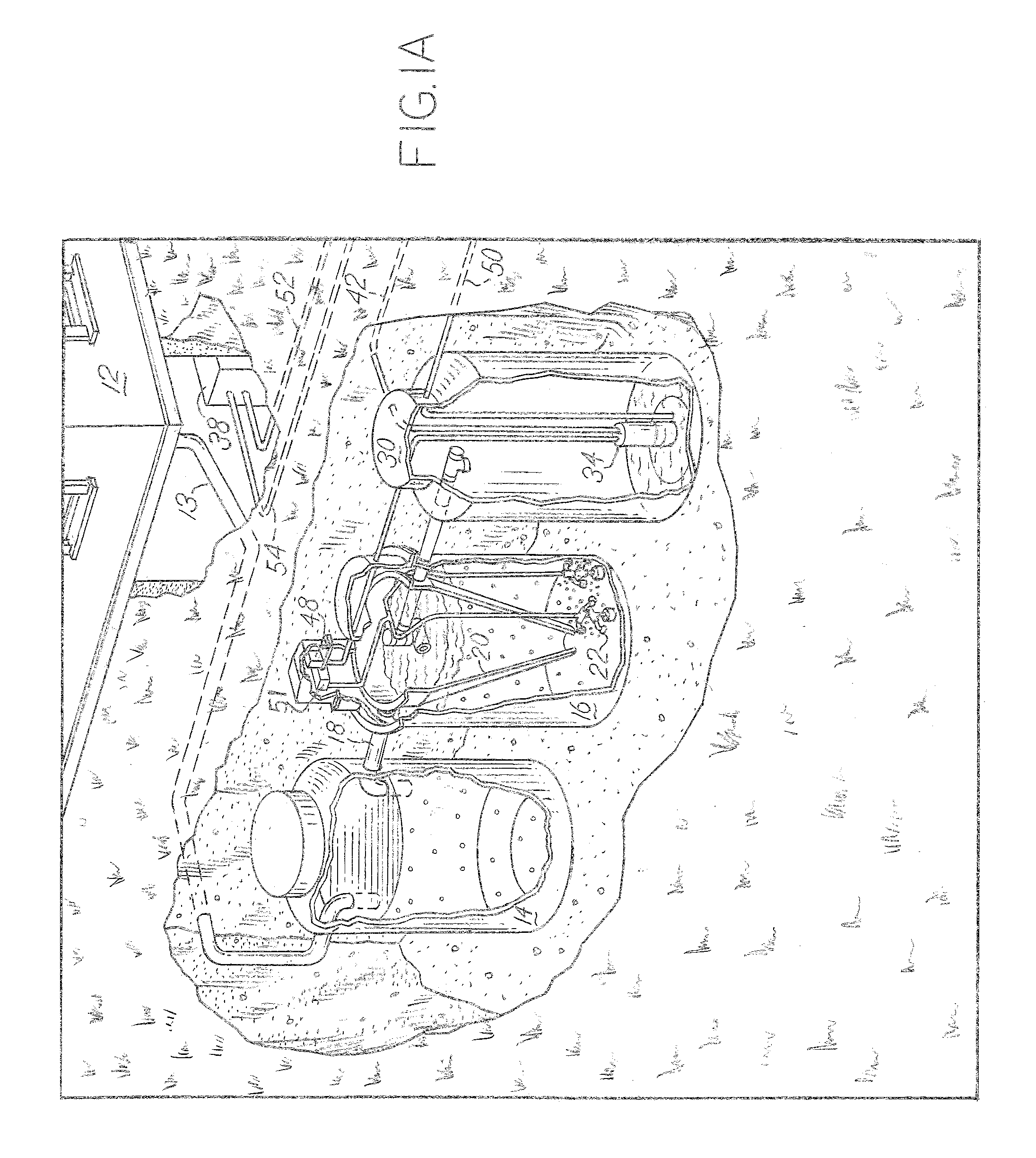Wastewater effluent to geothermal heating
a technology of wastewater effluent and geothermal heating, which is applied in the direction of biological water/sewage treatment, domestic cooling apparatus, lighting and heating apparatus, etc., to achieve the effect of increasing the efficiency of heat pump, increasing the temperature of soil, and increasing the efficiency of heat transfer
- Summary
- Abstract
- Description
- Claims
- Application Information
AI Technical Summary
Benefits of technology
Problems solved by technology
Method used
Image
Examples
Embodiment Construction
[0015]FIG. 1 shows an overview of the geothermal heating system of the present invention. Wastewater leaves a home 12 through a pipe 13 and enters a wastewater treatment system 10, shown as buried underground. The home 12 could also be a commercial building or other type of temperature-regulated structure. The wastewater treatment system is preferably a series of treatment tanks, as shown in FIGS. 1 and 1A or another similar system which utilizes the aerobic treatment of wastewater. A liquid pump 34 discharges treated wastewater from wastewater treatment system 10 to a drip field 36. Drip field 36 discharges the treated wastewater to the surrounding soil. A heat transfer array 40 is positioned near drip field 36 such that array 40 is in thermal contact with the wastewater discharged from drip field 36. Heat transfer array 40 is integrated with a heat pump 38 which is integrated with a heating or cooling system 39 in home 12.
[0016]In the preferred embodiment, the wastewater treatment...
PUM
| Property | Measurement | Unit |
|---|---|---|
| energy efficient | aaaaa | aaaaa |
| heat | aaaaa | aaaaa |
| surface area | aaaaa | aaaaa |
Abstract
Description
Claims
Application Information
 Login to View More
Login to View More - R&D
- Intellectual Property
- Life Sciences
- Materials
- Tech Scout
- Unparalleled Data Quality
- Higher Quality Content
- 60% Fewer Hallucinations
Browse by: Latest US Patents, China's latest patents, Technical Efficacy Thesaurus, Application Domain, Technology Topic, Popular Technical Reports.
© 2025 PatSnap. All rights reserved.Legal|Privacy policy|Modern Slavery Act Transparency Statement|Sitemap|About US| Contact US: help@patsnap.com



